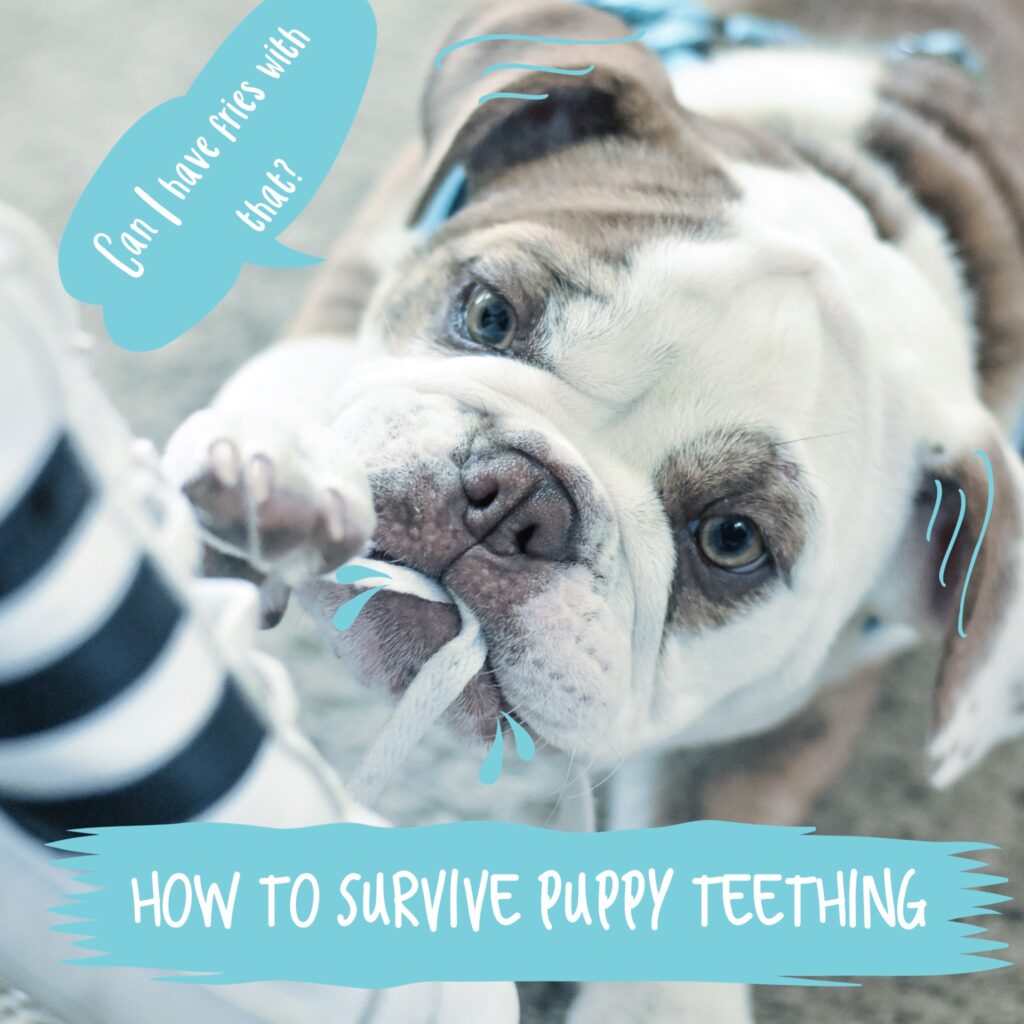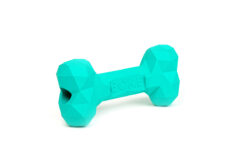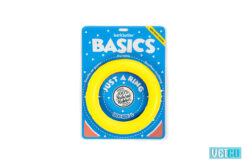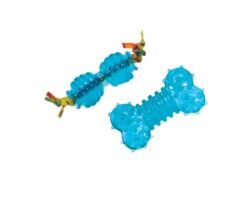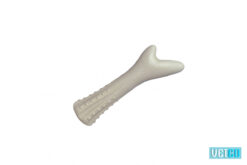Bottom Line
Teething hurts; this process can be painful for your pup and for your favourite flip flops. It’s important to remember that your puppy is chewing everything it can get it’s paws on out of necessity, and not spite. They do this to alleviate the pain of the teething process. It’s crucial for your puppy to learn what’s meant for teething and what is not.
Tell Me More
When your pup is around 4 months old, their milk teeth will fall out to make room for a permanent set of adult teeth. This is the time to be prepared with the right tools and information to help you (and your home) get through this process unscathed (literally!).
Your pup handles teething pains by chewing. Chewing helps ease some of the irritation on their gums (a bit like scratching an itch). Let’s not forget—your pup is young! Their mouth is a bit like your hand; it’s what they use to explore and understand the world.
The teething process lasts around 3 months so don’t fret if you find baby teeth in the carpet, or some blood spots on chew toys, it’s natural and will be over soon. It is imperative that you don’t yell at your pup, or grab his muzzle to correct him. A hostile response might scare your pup and teach him not to like hands reaching toward his face.
What You Can Do
- Trade-Up – As soon as you find the puppy chewing on something not good for him, just calmly and sternly say “No.” Then trade up by offering something they like. When they start to chew on that thing, praise, and pet them.
- Hide your personal belongings – When exploring the world, puppies naturally gravitate to anything that smells like you. After all, you are their best friend, it’s no wonder, that they want to grab your shoes, your socks, your phone—anything that has your scent on it!
- Soft Mouth Training – is a technique in which we teach the puppy to bite objects softly, this is done by giving out expression like ‘Ouch’ and ‘Aah’ when the puppy starts to playfully bite, so it can learn to bite softly. Training your pup in soft mouth training right from an early stage is important so they know the difference between play and pain.
- Chew Toys – One of the best ways to keep a puppy away from your valuable items is to buy toys specifically designed for a teething puppy. Puppies also grow attached to their toys at this age (even if they destroy it with their teeth) so a favourite chew toy can become your greatest ally in keeping your home untouched. You can find some here
- Chilled Carrots – These frozen vegetables are particularly attractive to pups as they soothe their gums and can relieve some inflammation, apart from being loaded with vitamins and nutrients. Limit the puppy to one carrot per day to avoid stomach upsets.
- Teach them the ‘Leave’ command – It’s helpful to teach the “Leave It!” command, as soon as possible, as it will reduce the chances of the pup tugging and holding on to the object.
Related Products
-
Bark Butler CHU the Bone Chew Toy – GreenProduct on sale₹699
₹820(Inclusive of all taxes) -
Bark Butler Basics Just A Ring Dog Toy – YellowProduct on sale
-
Petstages Orka Petite Chew Pair₹550(Inclusive of all taxes)
-
Petstages Deerhorn Dog Chew ToyProduct on sale





